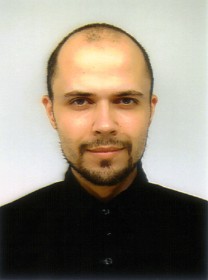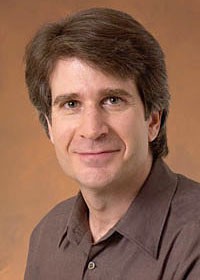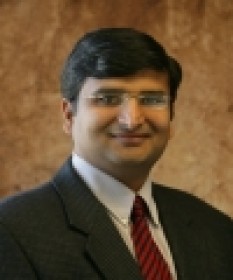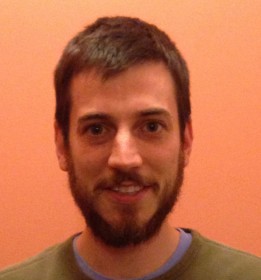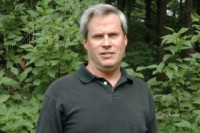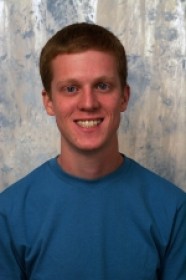Facial Expression Analysis based on 3D Deformable Models
Event Location: NSH 1305Bio: Laszlo Attila Jeni is a research scientist at the Carnegie Mellon University and the University of Pittsburgh. The main body of his work concentrates on machine learning for affective behavior analysis and its applications, including 3D deformable face registration, facial expression analysis and human-machine interaction. At present most of his research [...]
School of Interactive Computing
GVU and RIM @ GT Centers
Video Analysis and Enhancement: Video Stabilization and Rolling Shutter Removal on YouTube
Event Location: NSH 1305Bio: Irfan Essa is a Professor in the School of Interactive Computing (iC) of the College of Computing (CoC), and Adjunct Professor in the School of Electrical and Computer Engineering, Georgia Institute of Technology (GA Tech), in Atlanta, Georgia, USA. He is also the Director of Off-Campus Initiatives for the College of [...]
How should a robot perceive the world?
Event Location: NSH 1305Bio: Ashutosh Saxena is an assistant professor in computer science department at Cornell University. His research interests include machine learning and robotics perception, especially in the domain of personal robots. He received his MS in 2006 and Ph.D. in 2009 from Stanford University, and his B.Tech. in 2004 from Indian Institute of [...]
2012 Robotics Activities at JPL
Event Location: GHC 2109Bio: Richard Volpe is Manager of the Mobility and Robotic Systems Section of NASA's Jet Propulsion Laboratory, California Institute of Technology. The section is a team of over 90 robotics engineers doing research and spaceflight implementation of robotic systems for Roving, Digging, Ballooning, Drilling, and other modes of in-situ planetary exploration. In [...]
Lytro – Light Field Cameras, Entrepreneurship and the Future of Photography
Event Location: Disney Research Pittsburgh, CIC Building, Lower Level, Tomorrowland Conference RoomBio: Ren Ng is the founder of Lytro, and developed the underlying technology during graduate school. Ren's Ph.D. research on light field technology won the ACM Doctoral Dissertation Award and Stanford University’s Arthur Samuel Award. Ren's leadership of Lytro has also earned him a [...]
Member, Maryland Robotics Center, Institute for Systems Research
Department of Mechanical Engineering
Towards Robot-Assisted Neurosurgery Under Continuous MRI
Event Location: NSH 1305Bio: Dr. Jaydev P. Desai is currently an Associate Professor in the Department of Mechanical Engineering and a Member of the Maryland Robotics Center at the University of Maryland, College Park (UMCP). Prior to joining UMCP, he was an Associate Professor at Drexel University. He completed his undergraduate studies from the Indian [...]
Orbiters, Landers, and Rovers: Computer Vision for Autonomous Space Exploration
Event Location: NSH 1305Bio: David Thompson received a PhD from the Robotics Institute, where he participated in the FRC Life in the Atacama and Science Autonomy projects. These days he is a research technologist at the Jet Propulsion Laboratory, California Institute of Technology. He works in the Machine Learning and Instrument Autonomy group, and focuses [...]
Data-Driven Geometric Scene Understanding
Event Location: NSH 3305Abstract: In this thesis proposal, we describe a data-driven approach to leverage repositories of 3D models for scene understanding. Our ability to relate what we see in an image to a large collection of 3D models allows us to transfer information from these models, creating a rich understanding of the scene. We [...]
Animal models for robotic design: neuromuscular and biomechanical studies of terrestrial and aerial locomotion
Bio: Andrew A. Biewener received his BS degree in Zoology from Duke University, NC, USA in 1974 and his MA and PhD in Biology from Harvard University, MA, USA in 1982. His academic appointments include being an Instructor (1982-84), Assistant Professor (1984-90), and Professor (1990-1998) at the University of Chicago, where he also served as [...]
Robust Natural Language Direction Following through Unknown Environments
Event Location: GHC 4405Abstract: Commanding robots through unconstrained natural language directions is intuitive, flexible, and does not require specialized interfaces or training. Providing this capability would enable effortless coordination in human robot teams that operate in non-specialized environments. However, natural language direction following through unknown environments requires understanding the structure of language, mapping verbs and [...]
